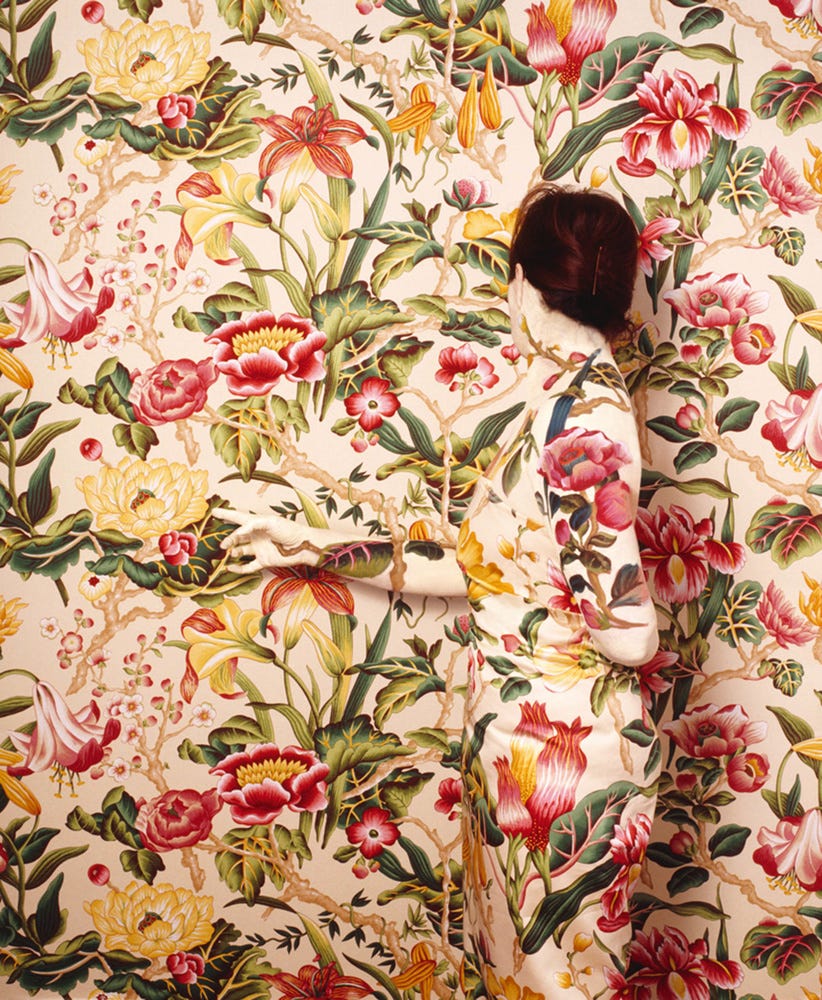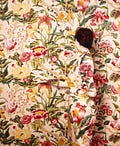Balcony
'You need to think, and thinking well is the hardest thing in the world to do.' —Vivian Gornick

'Paradise' by Cecilia Parades; image via Lens Culture
I was sitting on a balcony above a sea of heads, close to the edge, looking down on a lit stage. The speakers were going to come on soon, one after the other, to tell stories without notes or prompts. Good storytelling means being unguarded now. Audiences want to witness people unfurling all of their vulnerabilities so that they seem to bloom right there on the stage. Sitting beside me were two women – I think a mother and daughter – who were making each other laugh so hard they were rocking back and forth and sometimes the knee of the woman sitting directly beside me touched mine. Even though they were sitting right there and speaking English I couldn't grasp what they were saying. I felt far away, and getting farther. Something wasn't right. I felt as though my brain had sprung a leak and sense was draining out; I was draining out. I remembered how, the previous week when I was over in London, I was at my brother's flat, and a plumber was there trying to find where a leak was in the water pipes. He started prying up floor tiles in a corner of the house, uncovering dirt and metal bits underneath, and as he was crouching there the back of his pants slid down and exposed this amazing, picture-perfect view of his butt crack. At the exact same moment there was a flood in the kitchen, water bubbling up, rippling brazenly all over the floor. The plumber, James, leapt up and hitched up his pants, and shouted with delight, 'There it is.' (He'd been here for hours, searching, and talking to me, and just before he finally left he shook my hand and said, 'Come back to England!') Anyway – I wished I, or someone, could find where the leak was in my head, let it bubble dramatically for a moment so that we could shout about the volume of stuff coming out, and then plug it, even temporarily, at least until I got off this balcony and wove my way through the crowd, out of this event, towards a benzo and bed.
When someone came onto the stage and started introducing the speakers, I couldn't understand what it meant whenever the audience laughed. The speaker said something like, 'And they will discuss whether the South Island is, in fact, another country,' and there was a laugh that sounded weirdly geological, like a hunk of cliff falling into sea. Maybe I was still just jetlagged. That was likely. Nothing bulldozes your sense of humour, nothing hollows out social niceties like jetlag. But maybe the joke was unfunny, actually, and what was I doing back here?
Every place is a bad place to get depressed but an arts festival seems to me like an especially bad place, because all around you people are making a deeper, better sense of things while your basic comprehension is curdling and souring. Most other people are appreciating truths. They are being stroked by wit, story, grace. But you've lost the sensitivity to feel these strokes. In some sessions at a literary festival it's like the audience is having a collective, slowly gathering orgasm all around you while you lie there cold. I remember a friend telling me about a yoga class she went to once, where the instructor got annoyed at her for apparently not following instructions, so made her sit on the floor for the remainder of the class. 'So I just had to sit there motionless while all these beautiful people did yoga around me for an hour.' A literary festival can feel quite a bit like that sometimes, I think.
When I fall off the balcony, I thought, I'll fall through the air and then onto the people underneath, and I'll feel their bodies against mine, their clothes, their hairdos. Thinking this, I wasn't afraid, just resigned. It seemed to me like something that would happen in one simple motion, like a kid losing a scoop of ice cream off their ice cream cone. I knew I wouldn't jump off the balcony, because I didn't feel like I had any volition in me, but I thought I would soon lose control of my body and it would tilt slowly towards the edge, without my willing it, and then like a cicada husk it would let go and drop. I was drawn to the simplicity of such an event, though writing it down now really disturbs me.
On the stage the writers were speaking about – and it's daft, how appropriate this is – 'altered states'. Vivian Gornick spoke about the blinding power of infatuation. 'In essence, Daniel was something of a sociopath,' she said of one of her husbands, 'to whom I nonetheless remained married for four of the most dramatically confusing years of my life.' Carmen Aguirre spoke about a play in which she was acting, and in which she encountered a ghost – formerly a lighting technician, they thought - who turned the house lights up, blinding her. Jeanette Winterson's mother, horrified at her daughter's reading habit, said, 'The trouble with a book is that you never know what's in it until its too late,' and later built a roaring fire from Winterson's books. Tusiata Avia spoke about the cherry-sized brain tumour that sometimes makes her feel as though a sparkling gauze has dropped over her eyes. And then, after telling us about that, she seemed lost, and admitted she didn't know how to put all of the strands of her story together. 'I don't have an ending,' she said, 'so I'm going to leave you with the mystery.' She just stood there, and that was enough. Something was starting to happen as I was listening. I didn't feel the jubilance that other people in the crowd clearly were feeling; I wasn't as moved as some of them were; but I felt less far away, or at least that I had stopped moving away, that a warmth was clotting the gap. It wasn't that any of the stories were really dazzling. It was that hearing a single, strong voice was quieting the bad ones in my head. The full sentences were slowing the sense of fragmentation I had been experiencing. Maybe I should say something about the 'healing power of the arts', but it was much more basic than that. I think I just needed someone to talk to, and listening to stories tricked me into thinking that I was.
Over and over again, the next few days, that happened. The feeling of being about to let go would overcome me. Then some small thing would pull me back. When I passed someone in the crowd who used to be a close friend but who no longer is, I slunk away feeling awful; but later I heard Vivian Gornick speak about the first time she experienced joy while writing, and I felt better. I watched Ann Goldstein, who seemed so anxious, her hands in a small nervous bundle in her lap, gradually becoming more open and fluid as she spoke about translation, as though the conversation was strengthening her a little.
Through some rare privilege I was able to meet Vivian Gornick herself. I didn't think I should go, being in an altered state, but I went anyway. Elizabeth Knox and I met her to take her to dinner with some others. I said how much I had enjoyed her talk earlier that day, and that she was the reason I had come up to the festival, and she touched my arm and called me sweetheart, and she would disapprove of this cliché, but my heart sang. During dinner, at one point she said, trying to decipher Elizabeth's accent, 'I don't understand what you just said.' She turned to Jolisa Gracewood who was sitting next to her, to translate; Jolisa duly did. 'But,' Vivian said, bewildered, 'why would you say "e" when you mean "i"? I mean – you're educated people, right?' She was joking but I loved her openness about her confusion, and her resolve that, actually, our accents didn't make sense. None of our explanations seemed to touch her; she just accepted that she was on the outside here. The night culminated with us singing the New Zealand national anthem at her, across the table – I was so embarrassed I had to pinch the bridge of my nose while I sang – while she looked at us all with this deep, almost beautiful confusion.



